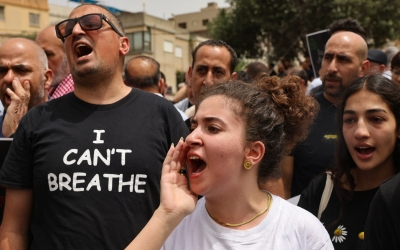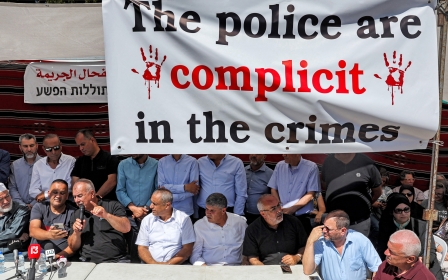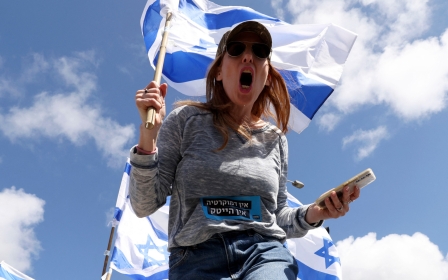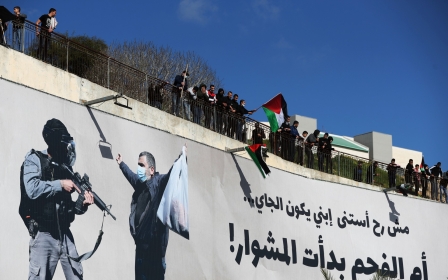Israelis protest judicial reforms and government inaction on Arab crime deaths
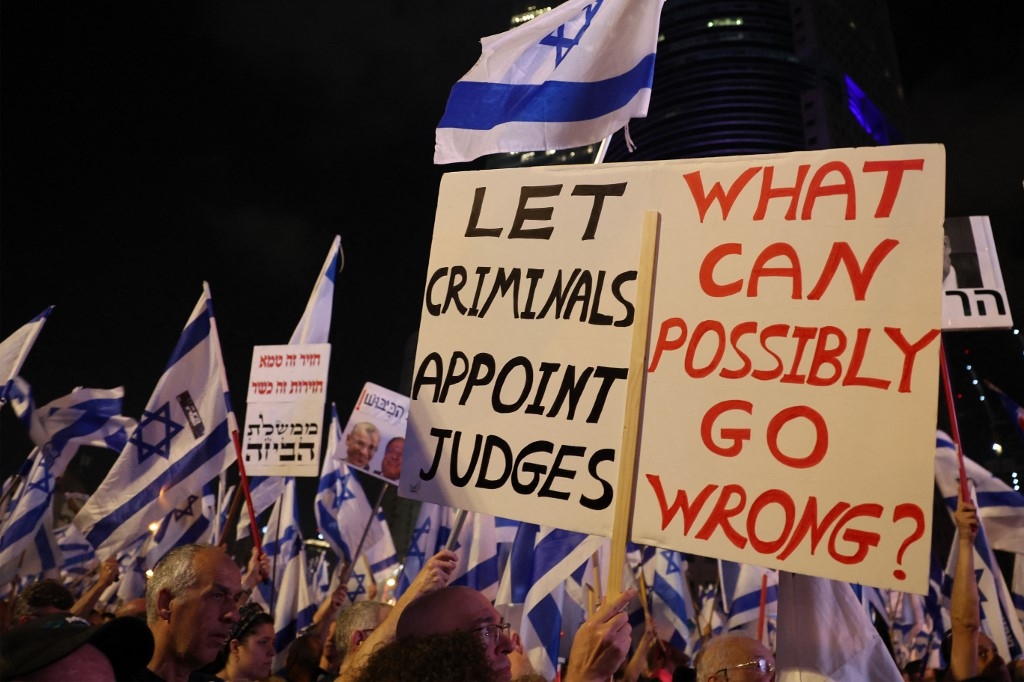
Thousands took to the streets of cities and towns across Israel on Saturday for the 23rd straight week, protesting against controversial judicial reform plans as well as against government inaction on the deadly violence hitting Arab communities.
The hard-right government's reform proposals would curtail the authority of the Supreme Court and give politicians greater powers over the selection of judges.
In March, Prime Minister Benjamin Netanyahu had announced a "pause" to allow for talks on the divisive reforms.
In central Tel Aviv, where thousands had gathered, demonstrator Michal Gat said "our country is being captured by extreme people… we're being held hostage".
"We have been here… with our kids, in the rain or hot weather," for 23 weeks, the 47-year-old technology worker told AFP.
New MEE newsletter: Jerusalem Dispatch
Sign up to get the latest insights and analysis on Israel-Palestine, alongside Turkey Unpacked and other MEE newsletters
"It's super important for the Israeli people to keep Israel a democracy."
Crime wave
Some protesters held signs criticising government inaction over a soaring crime wave that has affected the country's Arab minority.
"We will not let Ben-Gvir get away with murders in the Arab society," read one sign, referring to Israel's far-right National Security Minister Itamar Ben-Gvir.
Since the start of the year, some 100 people have been killed in crime-related violence in Arab Israeli communities, according to NGOs.
On Thursday, five Arab Israelis were shot dead at a car wash in Yafia, an Arab town near the city of Nazareth, police said.
Arabs in Israel have long complained of discrimination and police inaction against violence and crime that disproportionately affects their communities.
Organisers claimed more demonstrations on Saturday across Israel, including in the cities of Haifa and Rehovot.
Last month, parliament approved Israel's state budget, with Netanyahu vowing to "continue our efforts to reach understandings as broad as possible on the legal reform".
Netanyahu's government, a coalition between his Likud party and extreme-right and ultra-Orthodox Jewish allies, argues the changes are needed to rebalance powers between lawmakers and the judiciary.
Middle East Eye delivers independent and unrivalled coverage and analysis of the Middle East, North Africa and beyond. To learn more about republishing this content and the associated fees, please fill out this form. More about MEE can be found here.


